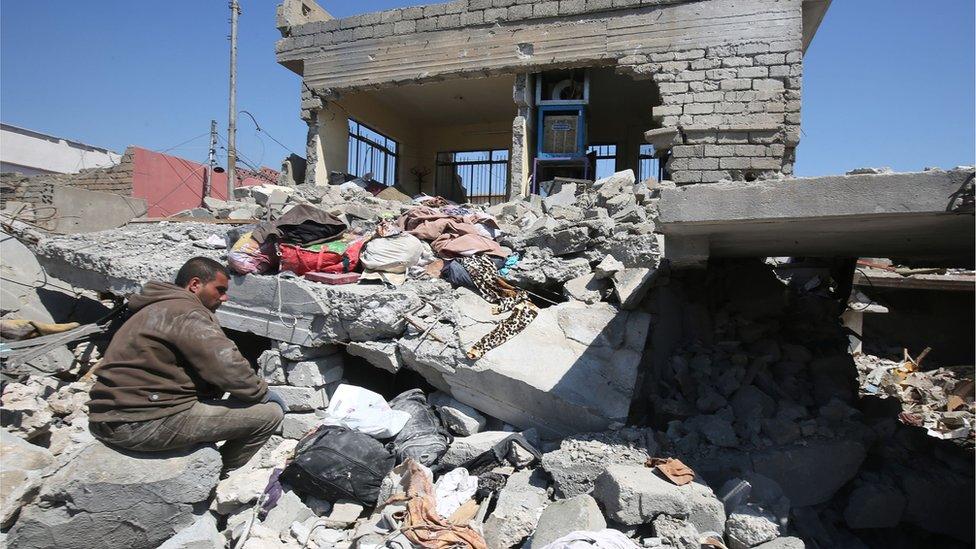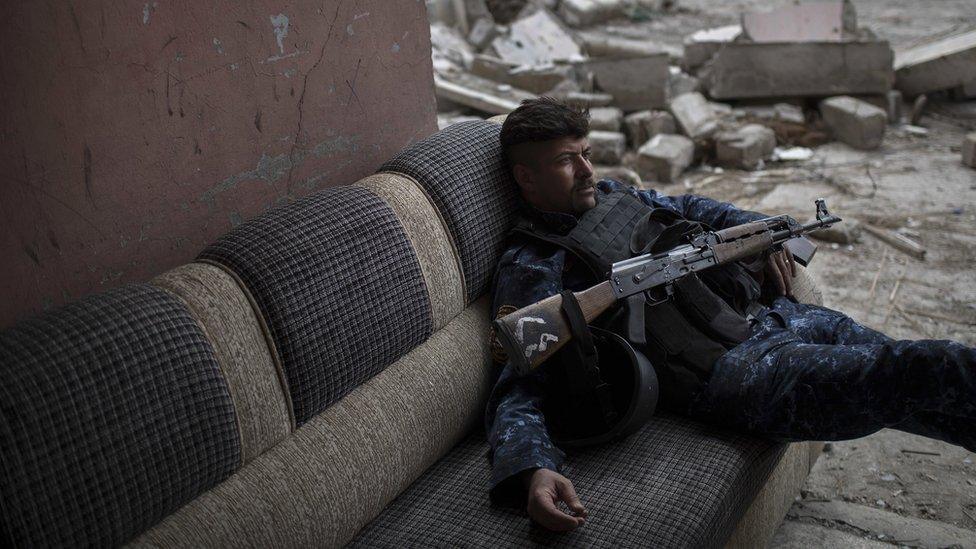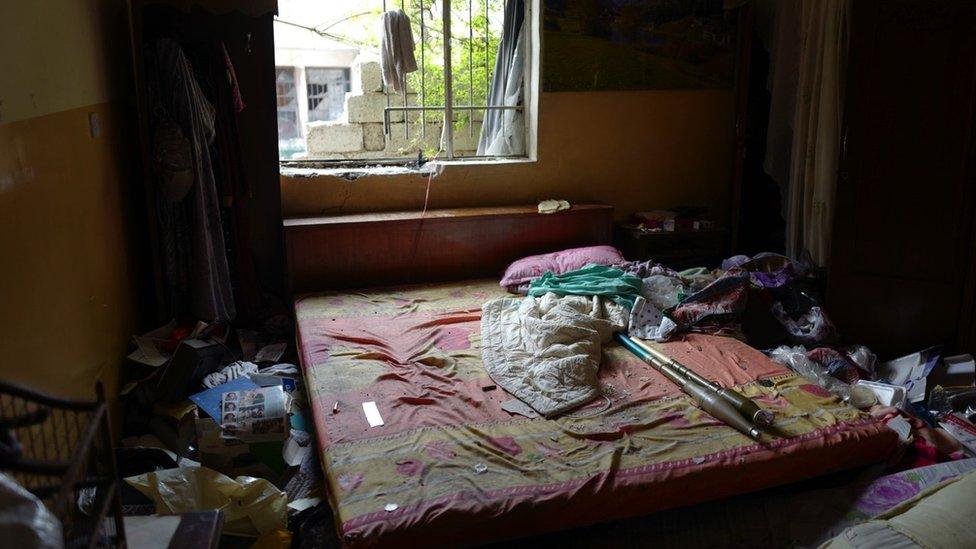Mosul battle: US 'may be responsible' for civilian deaths
- Published

Houses in the Jadida district were destroyed in an incident that left dozens dead
A US army general has said coalition forces "probably" played a role in the 17 March air strike on west Mosul which may have killed more than 100 people
Lt Gen Stephen Townsend said the US had carried out air strikes in that part of Iraq on that day.
He said there was "at least a fair chance" the US was responsible, in "an unintentional accident of war."
But he said it was also possible that so-called Islamic State (IS) had rigged the building with explosives.
A house in Mosul's western Jadida district was reportedly hit by an air strike targeting IS snipers and equipment.
Witnesses said IS had previously forced at least 140 civilians into the house to be used as human shields, and had booby-trapped the building.
The US army chief of staff, visiting Baghdad, echoed Gen Townsend's remarks, saying an investigation would create "some degree of certainty".

A soldier from the federal police rests near the front line in the fight for west Mosul
"It is very possible that Daesh blew up that building to blame it on the coalition in order to cause a delay in the offensive into Mosul and cause a delay in the use of coalition airstrikes," Gen Mark Milley said, using an alternative name for IS.
But he also admitted: "It is possible the coalition air strike did it."
The Iraqi military has denied the loss of life was caused by a coalition air strike, saying it found "no sign" of a strike and instead found "a huge detonated booby-trapped vehicle" nearby.

In West Mosul, homes have become fighting positions - as the RPGs in this bedroom, seen by BBC's Jeremy Bowen, show
Amnesty International has released a report accusing the coalition of failing to take adequate precautions to prevent civilian deaths.
The human rights group said it had evidence of an "alarming pattern" of air strikes on Mosul which "destroyed whole houses with entire families inside".
The UN's human rights chief has called for a review of tactics used by the coalition for the same reason.
Zeid Raad Al Hussein said bodies were being found in buildings where IS had reportedly held people as human shields and were later targeted in air strikes.
He urged the coalition to avoid such "traps" and abide by international law.
But the US authorities insist the rules of engagement have not changed and there has been no drop in standards.
"Although our partners and the coalition have made mistakes that harmed civilians, we have never targeted them - not once," Lt Gen Townsend said.
Jeremy Bowen reports on the make-shift weapons leaving civilians with an impossible choice
The battle to recapture the city began five months ago, and the eastern part has been retaken in that time. But west Mosul remains the scene of chaotic fighting at street level.
More than 286,000 civilians living in the city have fled their homes during the fighting but many more have followed the Iraqi government's repeated instructions to stay put until they are reached by troops.
According to information verified by the UN, at least 307 people were killed and another 273 injured between 17 February, when the government launched an assault on the western half of Mosul, and 22 March.
Children in Mosul are facing sniper fire, the BBC's Orla Guerin hears
There have also been reports of IS snipers shooting at civilians attempting to flee IS-held areas towards advancing coalition troops.
"[IS]'s strategy of using children, men and women to shield themselves from attack is cowardly and disgraceful. It breaches the most basic standards of human dignity and morality," said Mr Zeid.
"And shooting civilians in the back as they flee for their lives is an act of monstrous depravity."